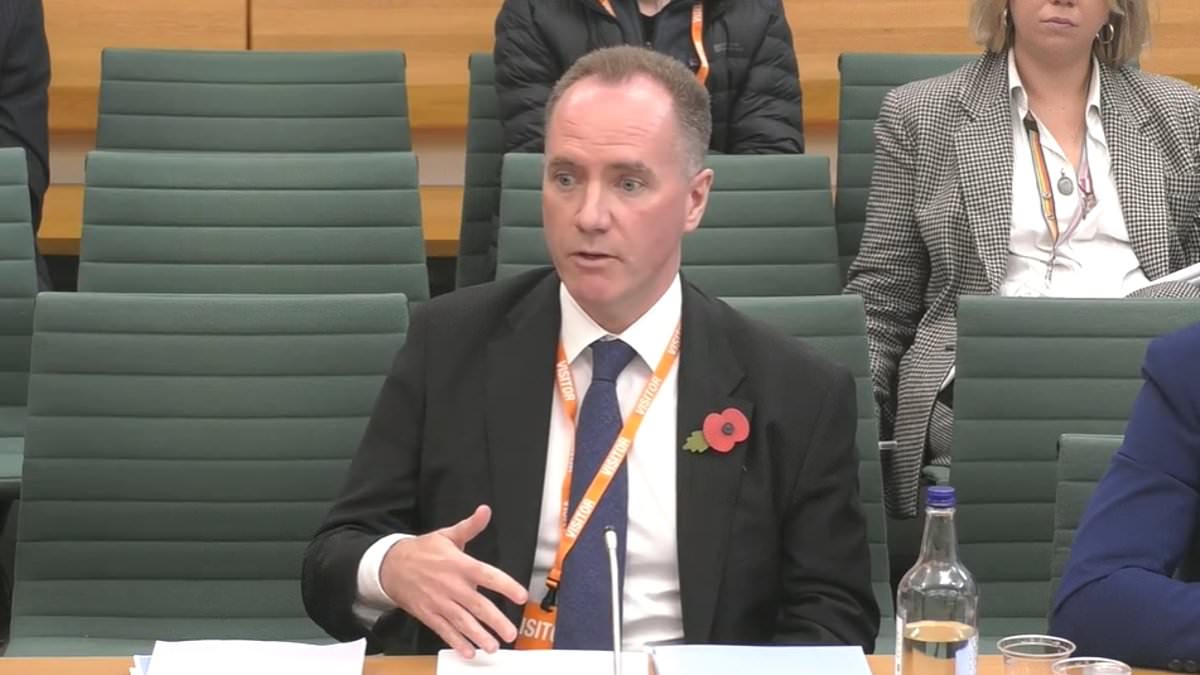The bill for government projects could soar after Rachel Reeves tore up fiscal rules to rush through a spending splurge.
The Treasury watchdog has flagged the potential for significant rises in costs due to ‘front loading’ of the outlay.
OBR chair Richard Hughes told MPs that the Chancellor’s decisions would put pressure on the labour market and drive higher inflation.
Mr Hughes was giving evidence to the cross-party Treasury Committee nearly a week after Ms Reeves announced £40billion a year in extra taxes.
Money is being poured into schools, hospitals, transport and housing. The measure of debt is also being switched to allow tens of billions more borrowing for investment.
The OBR forecasts that accompanied the fiscal statement indicated that inflation will rise to 2.6 per cent in 2025 ‘partly due to the direct and indirect impact of the Budget’.
That is significantly above the 1.5 per cent rate previously predicted.
The watchdog’s fiscal outlook document released with the Budget described the ‘fiscal loosening’ in the announcement signalled by the increase in public spending as ‘front-loaded’.
Mr Hughes was asked about the concept of front-loading, when a spending cost is more heavily attributed to the start of a project.
Liberal Democrat MP Bobby Dean asked Mr Hughes about where the Government is directing capital spend in the ‘near-term’.
Mr Hughes said that a ‘lot of’ the spend is going into areas such as health, education and energy infrastructure, but also admitted that ‘we don’t have a lot of visibility about what the Government is spending its capital on’ in the longer term.
The ‘ramp up’ of public spending could also put pressure on elements such as the labour force and materials and in turn contributed to their decision to increase inflation predictions, Mr Hughes said.
He told MPs: ‘Are the resources readily available to actually respond to the demands being put on them in terms of skilled personnel to do the building, access to materials to build the things?
‘And part of the reason why we’ve got inflation going up and we’ve got interest rates going up is we think the short answer to that is no.’
Pushed further by Mr Dean on whether there was a fear that ‘by front loading’ rather than ‘spreading that capital spend’ over a longer period there could be ‘more expensive infrastructure delivery’, Mr Hughes responded: ‘Quite possibly. Quite possibly, yes.’
He added: ‘We do have a higher inflation in our forecast as a result of the fact there’s a big fiscal loosening in this Budget.
‘About two thirds of it is going on current spending but about one third of it is going on capital, which makes it more capital heavy than the overall composition of public spending so it’s a significant injection.’
As well as the tax rises, last week’s Budget also confirmed a change in the way Government debt is measured in order to give the Treasury greater borrowing flexibility.
Speaking last week, Ms Reeves said that she had to make ‘big choices’ in her statement.
‘I don’t want to repeat a Budget like this ever again, but it was necessary to get our public finances and our public services on a stable trajectory,’ she told Times Radio.
